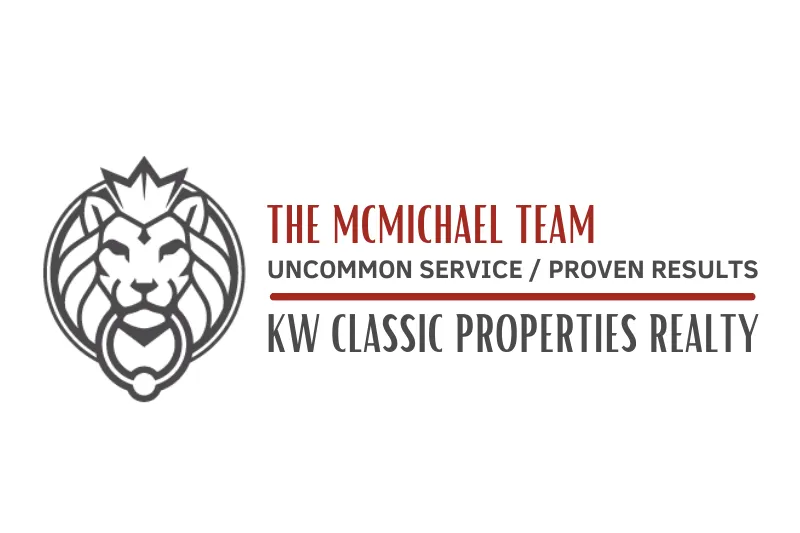Sell Your Columbus,Ohio Home Quickly With The McMichael Team
Join tons of highly satisfied homeowners who have worked with The McMicheal Team to sell their home quickly and for top dollar.
or call us at (614) 766-7766 today!
Are you ready to sell your house? Fill out this simple form or call (614) 769-7766.
Know Why You are Selling
If you know exactly why you are selling then it is easier for you to follow the right plan of action for getting what you want.
If you are a seller who needs to close a sale as quickly as possible, then you should know that getting the highest price possible is not one of your priorities. It does not mean that you won’t or cannot get the highest price, but it means that the price is not the deciding factor.
A buyer who can give you a quick closing time will appeal much more to you than a buyer who can offer you more money but the negotiation and closing time drag on.
It’s always good to know how low you will go, in terms of selling price. This will help to eliminate some of the offers that you find simply offensive or ridiculous. Even though you should consider all offers seriously and take into consideration the terms of each offer, sometimes, if you know the bottom line and are strict about it, you can save yourself time.
Once you know what your limits and reasons are, discuss them with your agent so that they can help you set your goals realistically. If you decide to list your home on your own, make sure you do research on the current market, and you get the proper advice you need in terms of legal issues, etc. The key is to be realistic and to know what your goals are so they can be met.
Plan of Action
- Analyze why you are selling – If you understand your motives, you will be able to better negotiate and to get what it is that you want, whether it be a quick sale, high price, or somewhere in the middle.
- Prepare your home for the buyer – Maximize the strengths of your property and fix up its weaknesses. You want the buyer to walk away from your home with a lasting good impression.
- Find a good real estate agent that understands your needs – Make sure that your agent is loyal to you, and can negotiate to help you achieve your goals. In addition, they should be assertive and honest with both you and the buyer.
- Be prepared for negotiation – Learn and understand your buyer’s situation; what are their motives? Can you demand a big deposit from them? Try to lock in the buyer so that the deal goes through.
- Negotiate for the best price and the best terms – Learn how to counter offer to get maximum value from every offer.
- Make sure the contract is accurate and complete – Be honest with your disclosures; you do not want to lose the deal because you were lying or diminishing your home’s defects. Insist the buyers get a professional inspection. This will protect both you and the buyer.
Finding the Right Agent
Not all agents work the same way. The most important attribute of an agent is that he/she is well connected to the real estate industry. He/she should know the market and provide information on past sales, current listings, his or her marketing plan, and at least 4 solid references. In addition, you also want to look for an agent that is honest, assertive, and one that best understands your needs.
Try to go with a local agent. They can better serve your needs because they should be more familiar with the local market conditions, local prices, and what’s hot or not in your community.
Considering Offers
When reading an offer, keep in mind that you are out to get the best price AND the best terms for you. If you focus solely on the price, you may overlook terms that could be favorable to you as a seller.
Some terms that may work in your favor:
higher-than-market-interest in a second mortgage for your home
the buyer will pay for most or all of the closing costs
the buyer will take care of any repairs
quick close – the buyer is pre-approved, ready to close in a timeframe that best suits you
all-cash deal
When reading through offers, remember to look at the whole package. Take the time that you need to assess what is being offered and if it meets your needs.
Setting the Price
The price is the first thing buyers notice about your property. If you set your price too high, then the chance of alienating buyers is higher. You want your house to be taken seriously, and the asking price reflects how serious you are about selling your home.
Several factors will contribute to your final decision. First, you should compare your house to others that are in the market. If you use an agent, he/she will provide you with a CMA (Comparative Market Analysis). The CMA will reflect the following:
houses in your price range and area that were sold within the last half-year
asking and selling prices of houses
current inventory of houses on the market
features of each house on the market
For Sale By Owner – A Good Idea?
FSBO (pronounced fizz-bo), or For Sale By Owner, is a way of selling your home without the use of a professional real estate agent or broker. The idea behind FSBO is that by selling your home yourself, you save the approximate 6% that would be the agents’ commission.
6% may not sound like a lot, but it can add up, especially on more expensive homes. But before you run off and decide to sell your home FSBO, you must remember that to get savings like that, there must be a cost. So what’s the catch? Selling FSBO is hard. A lot harder.
Only about 10% of sellers that decide to do FSBO are successful at it. And not all of them end up saving themselves money. FSBO sellers often end up accepting a lower price for their home than they would with an agent.
There are of course other issues as well. Can you afford to make selling your home your full-time job? Because for a lot of FSBO sellers, that’s exactly what it is. Do you have the time and capital to spend on the marketing, advertising, inspections, paperwork, phone calls, showings, and problems that come up when any home is sold?
Selling with a professional agent also has other advantages. An agent can get your home listed on the MLS (Multiple Listing Service) and other popular websites where not only homebuyers but also other agents can easily find it. Professional real estate agents also have an extensive network that allows them to more easily find a buyer.
So before you decide to sell your home yourself, thoughtfully consider just how much time and effort you can spare for selling your home, as well as how important it is that your home sell sooner rather than later.
Recent Posts

Exploring the process of obtaining a home equity line of credit (HELOC)
“Your money needs to work for you, not lie around you.” - Dave Ramsey
Introduction:
If you own a house you might be familiar, with a Home Equity Line of Credit commonly referred to as HELOC. This financial tool enables homeowners to use the equity they have built in their homes to secure a line of credit. In this article we will delve into the world of HELOCs, explaining what they are, how they function, and why they can be a valuable financial resource.

A HELOC can be used for various purposes, including home improvements, debt consolidation, education expenses, or emergency funds.
Introduction
A HELOC is a type of loan that allows homeowners to borrow money using the equity they have accumulated in their property. Unlike loans where you receive a lump sum upfront, a HELOC functions like a credit card with an established credit limit. You can withdraw funds as needed, pay interest on the amount used, and repay the borrowed amount.
Understanding HELOC
What exactly is a HELOC?
A Home Equity Line of Credit is essentially a revolving line of credit that permits homeowners to access funds by leveraging their home as collateral. The borrowing capacity depends on factors such as, the appraised value of your home and your outstanding mortgage balance.
How does it operate?
HELOCs consist of two phases: the draw period and the repayment period. During the draw period, which typically lasts for 5-10 years you have the flexibility to access funds as and when needed. During this time it is common to make interest-only payments. Once the draw period ends you will enter the repayment period, which usually spans over 10-20 years. During this phase you will start repaying both the amount borrowed and the accrued interest.
The Advantages of a Home Equity Line of Credit (HELOC)
A HELOC offers several benefits that homeowners can take advantage of:
Accessing Home Equity
HELOC provides homeowners with a means to tap into their accumulated home equity for purposes such as home renovations, consolidating debts, or covering educational expenses.
Flexible Borrowing Options
One of the advantages of a HELOC is its flexible nature. You have the freedom to access funds whenever necessary while only paying interest on the outstanding balance. Borrowing from a HELOC is not mandatory.
Lower Interest Rates
Compared to other forms of credit ,like credit cards or personal loans, HELOCs often come with lower interest rates. This makes them an attractive and cost effective option when it comes to borrowing money.
Qualifying for a Home Equity Line of Credit (HELOC)
To be eligible for a HELOC certain criteria need to be met:
Credit Score and History
Lenders take your credit score and credit history into consideration when approving your application for a HELOC. A higher credit score increases your chances of approval and may lead to more favorable terms.
Home Equity Requirements
To be eligible for a Home Equity Line of Credit (HELOC) it's usually necessary to have a certain amount of equity in your home. Lenders typically require that the combined loan-to-value ratio, including the HELOC, does not exceed 80%.
The Application Process
The process of obtaining a HELOC involves these steps:
1. Gathering Required Documents
Collect documents such as proof of income, home appraisal, and mortgage statement.
2. Applying for a HELOC
You can apply directly with a lender or go through a mortgage broker. Be prepared for a credit check during this stage.
3. Approval and Disbursement
Once your application is approved you will receive your credit limit. You can then withdraw funds as needed and utilize them for your chosen purposes.
Responsible HELOC Management
While HELOCs offer financial flexibility, responsible management is crucial:
1. Using HELOC Funds Wisely
Make sure to utilize the funds from your HELOC for purposes that contribute to your well being, such as home improvements or education.
2. Repayment Considerations
Its important to plan how you will repay the borrowed amount, especially when you enter the repayment period.
3. Avoiding Potential Pitfalls
Exercise caution when considering using a HELOC for non-essential expenses or riskier investments.
Comparing HELOC to Options
What Makes HELOC Different from a Home Equity Loan?
It's important to understand the distinctions between a HELOC and a home equity loan. While both provide access to your home's equity, there are differences in how they work. With a home equity loan you receive a lump sum payment upfront whereas with a HELOC you have access to a line of credit that you can draw from as needed.
HELOC vs. Personal Loans
When comparing HELOCs to personal loans, several factors come into play. These include interest rates, repayment terms, and tax implications. While personal loans may offer convenience and simplicity in terms of repayment, HELOCs often come with lower interest rates and potential tax benefits.
Tax Implications
One of the considerations when utilizing a HELOC is its tax deductibility. Understanding whether the interest paid on your HELOC qualifies for tax deductions can have an impact on your financial situation. It's advisable to consult with a tax professional or advisor for guidance on this matter.
Conclusion
In summary, Home Equity Lines of Credit (HELOCs) can serve as valuable financial tools for homeowners. They provide access to home equity, while offering flexibility in borrowing funds when needed. Additionally they often come with lower interest rates compared to other options available. However it is crucial to carefully manage these credit lines in order to maximize their benefits while avoiding any pitfalls.
FAQs
1. What can I use a HELOC for?
A HELOC can be used for various purposes, including home improvements, debt consolidation, education expenses, or emergency funds.
2. Is a HELOC better than a home equity loan?
HELOCs offer more flexibility but may have variable interest rates, while home equity loans provide a lump sum with a fixed interest rate. The choice depends on your financial needs.
3. Are HELOC interest payments tax-deductible?
In many cases, yes. The interest paid on a HELOC may be tax-deductible, but it's essential to consult a tax professional for guidance.
4. Can I lose my home if I can't repay a HELOC?
Yes, defaulting on a HELOC can lead to foreclosure. It's crucial to manage your HELOC responsibly and make timely payments.
5. How do I find the best HELOC for my needs?
To find the right HELOC, compare terms, interest rates, and fees from different lenders. Consider consulting a financial advisor for guidance.
Getting the Highest Price in the Shortest Time
In order to get the highest price in the shortest time, you need to know how to market your home. The better you market your home, the more offers you will get. And the more offers you get, the more choices you have to get the price and terms you want.
The most important factor of marketing your home is pricing it right. Your price should be adjusted to reflect the market and your property’s worth. The key is to get as many people as possible checking out your fairly priced property. If your property is not priced fairly, there will be no buyers because your price is set too high.
Another important factor is the condition of your home. Make sure that your home looks ready to be sold. Fix any defects (peeling or faded paint, cracks, stains, etc.) Condition alone can sometimes prompt fast buying decisions. Not only should you fix any defects, but consider upgrading your home by making major repairs and cosmetic improvements before selling. A nice looking home triggers the emotional response that can lead to a financial response.
Learn how to negotiate the best terms for all parties involved. Terms are another factor that may be adjusted to attract buyers. If you insist on getting your asking price, think of what you can offer to the buyers. For example, improvements you’ve made or even offering seller financing at a lower than market interest rate on a portion of the sale price. Convince them why they should be paying the price you have set.
Lastly, get the buzz out about your home. List your house with a hot agent that ensures your house is listed on the MLS and on the Internet. On your own, get the word out. It should always be visible to passersby that your house is for sale, whether it is through signs, local advertisements or you telling friends, family, and acquaintances.

1349 W. Lane Ave, Suite 1125, Columbus, OH, 43221
(614) 769-7766
(614) 768-6531
www.livingincolumbus.com





